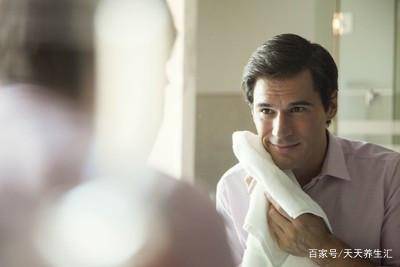Male “andropause” is also a key period for longevity, the less you do these 3 things, the healthier your body will be.
Andropause, known medically as the male climacteric stage, refers to the fluctuations in sex hormones before and after menopause in women, resulting in a series of special periods mainly characterized by dysfunction of the autonomic nervous system and some psychological discomfort symptoms. Therefore, andropause usually refers to women. However, in recent years, many people have recognized that men also experience andropause. Of course, male andropause has no relation to menopause.
Male andropause refers to a transitional period from middle age to old age for men, during which significant changes in hormone levels in the body lead to substantial physiological and psychological changes, accelerating aging. If these changes are too intense, they can adversely affect the body system functions and reduce the quality of life. Since the Austrian Urological Society proposed the “partial androgen deficiency in aging males” in 1994, male “andropause” has gradually been accepted by people.
Generally, male andropause usually occurs between the ages of 50-60. During this period, most men still bear heavy family burdens, while their bodies enter a downward trajectory, showing signs of accelerated aging. If not properly cared for, many diseases are more likely to take root and develop during this time, making it a critical period for longevity for men going through andropause.
Male “andropause” is also a key period for longevity, the less you do these 3 things, the healthier your body will be.
1. Reduce business entertainment
In our traditional culture, there is always the saying of “men working outside, women handling domestic affairs.” Therefore, male socializing is indispensable. Apart from some business activities, the socializing often involves smoking, drinking, staying up late, overeating, etc., as well as many other forms of entertainment. These are generally unhealthy lifestyle habits with irregular routines, contributing to the infamous “beer belly” in men.
When young, the body’s metabolism is strong, and for career advancement, socializing may not have a significant impact. However, after the age of 50, as the body’s metabolic functions weaken and head towards decline, it’s advisable to reduce business entertainment, especially habits like smoking, drinking, staying up late excessively, etc.
2. Avoid eating late night snacks
Most men lead chaotic lifestyles with irregular schedules and eating habits. Many people enjoy eating late-night snacks. However, for men going through “andropause,” it is best to refrain from eating anything after 8 pm, especially avoiding any consumption after 10 pm and going to sleep instead.
Eating after 10 pm can place a burden on the stomach, leading to gastrointestinal discomfort. Those with poor digestion are prone to insomnia, and individuals with poor sleep quality have lower resistance to viral infections.
3. Avoid overeating and being inactive
The biggest taboo for men is being “overeating and inactive.” If men are lazy and overeat when young, they are likely to gain weight, leading to excessive burdens and a risk of chronic diseases in the future.
After the age of 50, as the body starts declining, cultivating habits of overeating and inactivity may accelerate weight gain, muscle atrophy due to lack of exercise, and affect heart-lung function and brain health. Thus, for men over 50, it becomes crucial to slow down their pace of life, adopt healthy habits, invest in health, exercise more, and potentially win the second half of life.
In summary, after the age of 50, men’s physical fitness is in decline, so attention to various aspects of life is crucial. Lay a better foundation for health and longevity.


